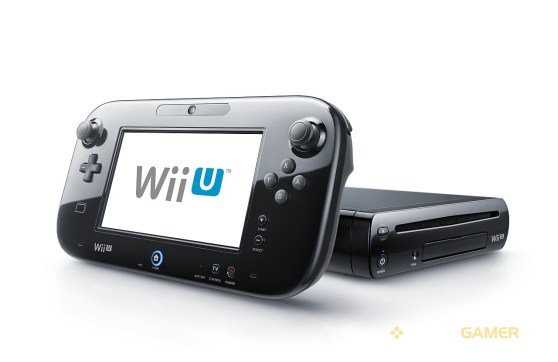This post has not been edited by the GamesBeat staff. Opinions by GamesBeat community writers do not necessarily reflect those of the staff.
Love it or hate it, Walmart’s huge success as a chain of supermarkets-slash-department stores is undeniable. But it’s not often that we, the inquisitive gamers, consider the role these stores play in the success or failure of video games, consoles, and the companies behind them. However, I strongly suggest that we start paying attention.
The Walmart-owned, British chain of supermarkets, Asda, has announced via a statement made to CVG that none of its 555 outlets will stock Wii U consoles and only provide limited stock of both the system and its games via the Asda Direct website.
The company hasn’t commented on the reason behind the move, nor has Nintendo said much about it, which leaves the matter open to speculation by the gaming press and, most importantly, the consumer.
But it’s not really that hard to guess. The Nintendo Wii U suffered from an abysmal launch last year that was plagued by hundreds of faulty units, a horrendously large day one operating system update, and a distinct lack of new and interesting games.
The poor launch resulted in poor sales, which in turn led many British retailers to slash console prices in an attempt to shift stock. Of note was Asda’s drastic reduction of the Wii U basic package, which fell from £250 right down to £150. It was then reported that Asda TK was recalling Wii U consoles from several of its shops, and now Asda stocks no Wii U consoles or games whatsoever.
But does it really matter? Asda may not stock the Wii U, but many more retailers still do. Besides, gamers haven’t taken great notice of supermarkets’ roles in the game industry before and are unlikely to change their opinions based off Asda’s actions, right?
Well, after a conversation I had recently, I’m not so sure.
Asda’s message to consumers
My 18-year-old little brother thoroughly enjoys video games and has for the majority of his life. Even so, he doesn’t know the difference between developers and publishers. He doesn’t understand why some games are multiplatform and not others, and he doesn’t read about a game-related product before he buys it. This isn’t because of a lack of interest or intelligence; he simply makes his purchasing decisions based on game trailers, demos, and word of mouth.
Now, this same brother of mine has had his sights set on a Wii U for some time mainly because he’s enjoyed Nintendo products in the past and wants to extend his positive experience with a more modern Nintendo console. He eyed up Asda’s temporary £150 Wii U price point but held off after the concern that “the Wii U has no games.” Needless to say, Electronic Entertainment Expo trailers for Bayonetta 2, The Wonderful 101, and Super Mario 3D World has him wishing he’d bought a Wii U while he could afford it.
Fast forward to July 29, when the aforementioned news of Asda made the rounds, and I’m contacting my brother to let him know that once again, the opportunity to nab a cheap Wii U has presented itself.
“So … How come Asda isn’t stocking Wii Us anymore?” The skepticism in his voice was obvious, so I explained how Asda hadn’t said why its shops aren’t stocking Wii U consoles or games but that most news sources suspect it’s due to poor sales.
“But then I’ll be buying a console that I can’t buy games for,” he said. Sarcastically, I explained how he’s never bought a video game from Asda in his life, yet he still manages to find plenty of places to buy games from.
“Yeah, yeah, OK,” he said. “But think about it. If Asda doesn’t think the Wii U or the ‘Nintendo’ brand itself isn’t selling these days, then it’s probably true.” At that point, I dropped the conversation and talked about something else, all while trying to hide the annoyance in my voice.
He had a point, though. If my brother hadn’t learned of Asda’s lack of in-store Nintendo products from me, he’d have surely heard it from someone else, and either way, he would have still decided not to buy a Wii U. After all, Asda is Britain’s second-largest supermarket chain. If you live in the U.K. and don’t shop there, chances are you know someone who does.
Nintendo had promised a lot but failed to deliver. A degree of foresight is healthy for any company, especially those operating within the video game industry, but keeping current and potential customers in the dark is just bad business. Is it really that surprising that people have come to their own conclusions regarding the current state of the Wii U?
They say worth of mouth is the most powerful marketing tool, and there’s no doubting the amount of talking that goes on in Asda, Walmart, and the rest of the world’s gargantuan supermarket chains. Unfortunately for Nintendo, the people’s collective mouth is not speaking in its favor.


